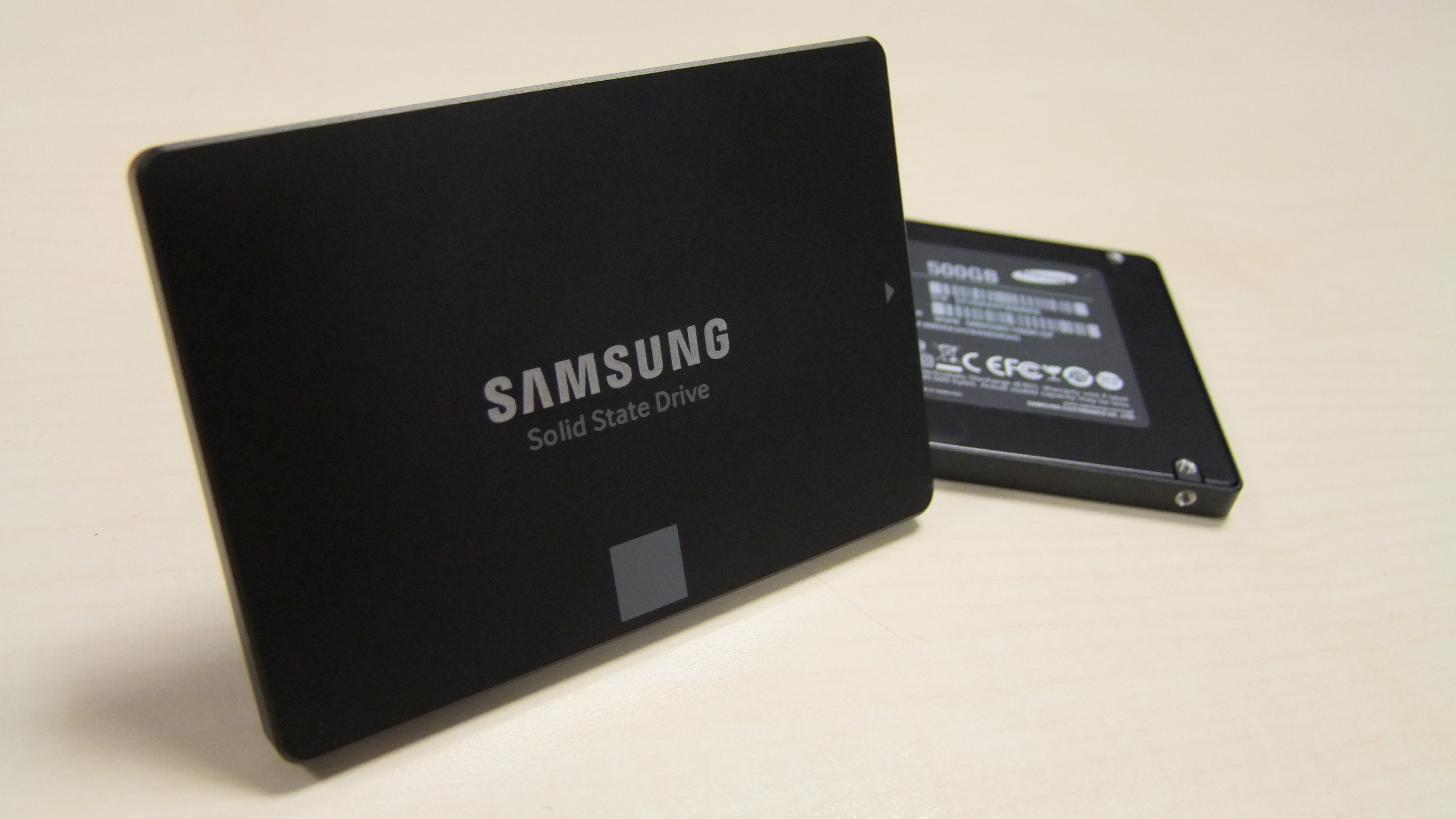Why you can trust TechRadar
When we're talking about the generational update of an SSD range it's natural to compare it to its predecessor, but arguably the more pertinent comparison is with the competition. The biggest competitor to the Samsung 850 EVO is Crucial's MX100.
Crucial, along with parent-company Micron, is another big name is SSDs and its MX100 range is its price/performance hero right now - especially in the 512GB capacity. It's a tough battle with the 500GB Samsung 850 EVO, with both posting very similar synthetic benchmark numbers.
This new Samsung drive is quicker in terms of sequential writes and 4k reads, but the difference would be practically invisible to the end user. The Crucial drive doesn't use any sort of TurboWrite shenanigans to hit its speeds, however, which explains why its real-world test results are quicker.
The Crucial MX100 512GB is also around $100 (£50) cheaper than this latest Samsung 850 EVO too.
Underneath the 512GB capacity though is where Samsung's new MGX controller really comes into its own.
Crucial's 2D NAND is arranged in 128Gbit 16nm MLC fashion for its MX100 drives, which means the smaller drives need fewer chips to hit their capacities. Which in turn knocks down their performance.
The Marvell controller in the Crucial drive thrives on multi-threaded performance, and if there aren't enough chips to occupy the controller it can't keep up the speeds.
There are no such problems for Samsung though; its 250GB drives perform on almost the same level as its 500GB drives.
If you're looking lower down the capacity stack then it becomes a no-brainer - the Samsung 850 EVO is the go-to affordable SSD.
It's the quickest at that price and comes with a confidence-boosting five year guarantee.

We liked
The overall performance of the Samsung 850 EVO 500GB is impressive, but not exactly earth-shatteringly different compared with the previous generation of affordable EVO drives.
We are though still talking about a drive that costs around 60c/GB (40p/GB); that's a great price for something which performs this quickly across the board.
We're also impressed with the level of warranty Samsung is offering for its consumer range of drives.
Most SSDs in this category carry three-year warranties where the Samsung 850 EVO gets a full five years. The extra endurance of the 40nm memory should pay dividends in terms of consumer confidence.
The tuning of the MGX controller to maintain performance down through the capacity stack is also very welcome. When you've got other drives, like the Crucial MX100, where performance seriously degrades once you drop below 512GB, that's impressive.
We disliked
As we've said, it's not massively different in terms of performance. It's also not enough quicker than the 512GB Crucial MX100 to really separate it from the cheaper competition at that capacity.
It's also very much a consumer-class SSD rather than one you could reasonably use for storage-heavy productivity tasks, like video editing or intensive photo-manipulation.
The consistent performance of the drive when it's really taking a hammering is relatively low, especially compared to something like the excellent SanDisk Extreme Pro.
Verdict
The Samsung 850 EVO is another quality, affordable SSD from a company cementing its place as one of the giants of the solid state industry. This 500GB version delivers in the performance stakes, but so do the other, lower-capacity drives too.
The benefits of the 3D V-NAND are evident in the improved endurance of the drive and its longer warranty. Both very welcome things in an industry where consumers are still a little wary of the long-term lifespan of these drives.
Where things get difficult is when you're comparing it to the competition rather than the generation of drives which have come before.
The big tester is the 512GB Crucial MX100. That in itself is a bit of an anomaly - its lower-capacity brethren are far, far slower - but it's still the best price/performance SSD you can buy in the half-terabyte class.
If you're really going to be hammering your drive, but can't pay the exorbitant prices for the pro-level SSDs, then you'd also be better off going for something like OCZ's latest ARC 100 series of drives. They're good-value, quick and incredibly consistent when it comes to heavy usage scenarios.
We're really waiting for Samsung to get its NVMe drives in gear to see serious performance gains in our SSDs then, but in the meantime the Samsung 850 EVO still represents a decent boost over the previous gen EVO drive at all capacities.
The Samsung 850 EVO is the fastest mainstream, consumer-class SSD around, but it's just not quick enough to make anyone reasonably consider it as an upgrade over the previous generation EVO.
